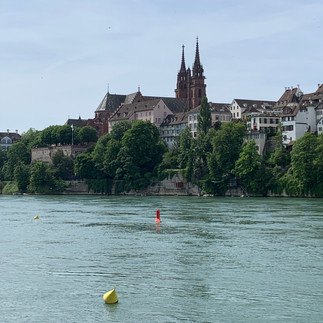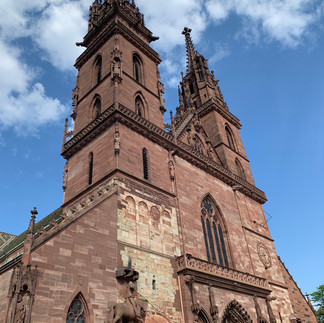Getting back out there: Sharing stories, ideas, and business cards at Future Labs Live 2023!
- Donald Peter Fraser

- Jun 5, 2023
- 3 min read
It has been a long time since I last attended and presented at a conference. In academia, promoting yourself and your work is a standard activity. But since leaving academia, and with the barriers to our social devices that the COVID-19 pandemic presented, going to these meetings fell far down my priority list. So it was with great excitement that I accepted the opportunity to present, exchange and promote my ideas and observations to a fresh audience at Future Labs Live (FLL). It was a chance to develop inter-personal relationships with people who I may never have crossed paths with otherwise.
The community that comes to FLL are the stakeholders who are interested in the future of the laboratory. These include but aren't limited to academics, industrialists, vendors, lab users, consultants, IT professionals, CEOs, pharma, start-ups, researchers, chemists, biologists and software developers... A very diverse bunch, but with a lot in common. FLL is hosted in Basel, Switzerland, which is a focal point for Biotech and Pharmaceutical development - most of the big players have offices and facilities here.

Basel straddles the Rhine river, which is one of the great rivers that weaves its way through Central Europe, it has both a rich cultural history and a modern, professional vibe. This is reflected in the architecture, from Basel Münster, to Roche Towers, both of which overlook the Rhine.
Over the course of 3 days, attendees shared their thoughts and predictions for what the future of the laboratory, and hence science might look like - and how we could be interacting with it. Key themes and trends that emerged include:
How to standardise our inter-operability protocols to achieve true plug and play architecture for lab equipment.
Can we democratise science through uptake of FAIR data guidelines and bringing down the up-front costs of automation?
Examples of multi-device Integration.
Rapid Implementation and Modularity of labs, from equipment to the infrastructure itelf.
Change management.
Digitisation and inter-connectedness.
Disruptive tech.
And of course - Generative AI
A key motivation of these technological advances is the desire to liberate the lab technicians from repetitive tasks - and let them do the exciting work that's off the beaten track.

Of particular interest to me, as a 'laboratory automator' was the theme of standardising the language of laboratory automation and analytical devices to achieve the 'plug-and-play' dream. Two standards have emerged as front runners, and both have their advantages. Time will tell if they directly compete, but for now it feels prudent to be aware of both - and develop my practice to implement either.
The conference itself was exceptionally well-organised and chaired. I particularly enjoyed the panel discussions and round-tables, as the interactivity of these sessions really encouraged free intellectual exchange. I therefore thank and congratulate the organisers and sponsors for a great meeting.
I leave Basel with a large number of new contacts to follow-up with. But most importantly, I leave with a bucket-load of new ideas and energy for future projects borne from my interactions: Generative AI might be able to mimic human creativity, but it can't mimic the energy and motivation that can only be gotten from the meeting of likeminded people.
Thanks for having me - I'm looking forward to next year already, where I hope to be able to present some of the exciting projects that we get up to.

The slides I presented pertain to the ReflX story, which was the design and deployment of a high-throughput genotyping workflow. The slides are freely available for download below. Refer also to this article.










Comments